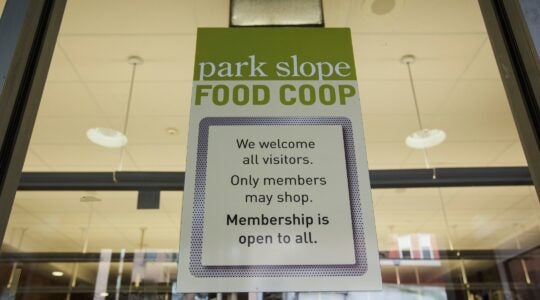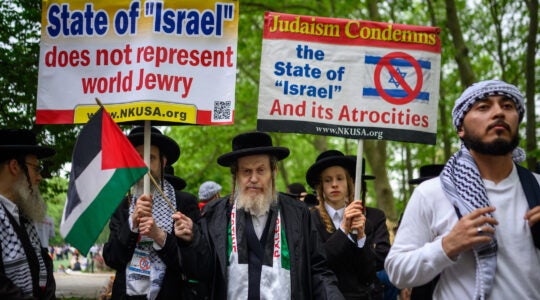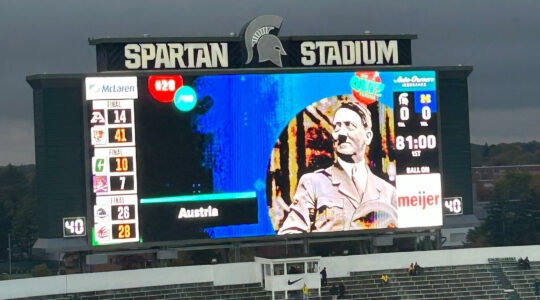FRANKFURT, Sept. 28 (JTA) – The Berlin Jewish community has expressed concern over an attempt to prevent Russian Jewish immigrants from settling in a nearby town. In a statement, the leader of the Berlin Jewish community, Andreas Nachama, called the incident “a new and distressing climax in the German animosity toward Jews that many considered conquered after 1945.” Nachama issued the statement after a German newspaper reported last week that the city council in the town of Gollwitz had passed a resolution criticizing the state government of Brandenburg’s plan to house 50 immigrants in a villa on the town’s outskirts. Gollwitz officials want to use the building for a senior citizens’ home. Since 1991, about 85,000 Jewish and non-Jewish family members from the former Soviet Union have moved to Germany. More than 30,000 have become active members of German Jewish communities. The Jewish immigrants came to Germany under a special program that gives them immigration benefits, including immediate housing in refugee shelters. The immigrants are divided among the 16 German states, which share the absorption costs of the immigrants. The Bonn government instituted this national distribution system in part to help revive Jewish life in all regions of Germany. But many of the Jewish immigrants are put in housing shelters in towns and villages that have no Jewish institutions and are more than 100 miles from existing Jewish communities. For Russian Jewish immigrants sent to eastern Germany, the situation has been even more difficult. There are few existing Jewish community structures in the formerly Communist part of Germany, and the immigrants often know too little about their religion to establish synagogues and other Jewish institutions. In addition, right-wing violence and xenophobia in many parts of eastern Germany continues to rise, despite its decline in other parts of Germany.
JTA has documented Jewish history in real-time for over a century. Keep our journalism strong by joining us in supporting independent, award-winning reporting.





